Whether Yellow Diamond will be available to achieve that, only time will tell.
[PR]上記の広告は3ヶ月以上新規記事投稿のないブログに表示されています。新しい記事を書く事で広告が消えます。
コメント
ただいまコメントを受けつけておりません。
Whether Yellow Diamond will be available to achieve that, only time will tell.
Harsimran Julka
Moneycontrol News
It was in the year 1992 that Amit Kumat, now 48, returned from the US after a masters degree in science from Louisiana State University, determined to make a difference in India.
Back in hometown of Indore, he could not find a job in an economy which was in shambles. He started assisting his father in his wholesale cloth shop in a busy bazaar of Indore selling stockpiles of nylon, cotton and linen by the tonnes.
“Those were the best two years of my life which taught me how to sell to an Indian customer who is extremely price conscious,” says Amit Kumat, now CEO of the Rs 900 crore company Prataap Snacks Limited Yellow Diamond brand of chips, namkeens and snacks.
The company listed on the Bombay Stock Exchange in September, this year and boasts of a valuation of about Rs 2700 crore on the Indian exchanges with Salman Khan as Yellow Diamaond's brand ambassador.
Coming back to Kumat's story. The cloth business did well which led Kumat to start expanding in various areas. He started a SAP training institute, a chemical dye business and even a website called dealinchem around 1996-1999.
The family landed neck deep in debt
Come dot-com bust and all businesses started collapsing like a stack of cards. This landed the Kumats in neck deep of debt of over Rs 18 crore.
“There were days where I had to think twice over whether I should take a bus or simply walk. There were days where I used to wake up and wonder what to do all day as our offices had shut down,” says Kumat.
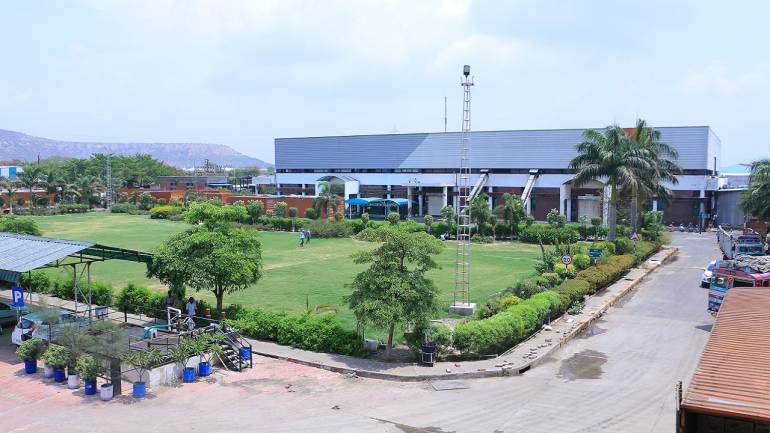
That is when Amit approached a family friend and a classmate of his elder brother Apurva Kumat for an investment of Rs 15 lakh in setting up a snacks business out of Indore.
Arvind Mehta, the family friend used to run a real estate business. He agreed to become a partner in the snacks business. Kumats started getting cheese balls manufactured in Lucknow, and selling them in Indore and other parts of the city.
The snacks business clicked. The trio set up a chips making unit in Indore and started making potato chips by the thousands every day giving competition to market incumbents such as Frito Lays, in certain pockets.
In 2006-07, they launched Chulbule, a rival to Kurkure, a popular snack made for the Indian palette by Pepsico India.
Seeing the success of Yellow Diamond, Sequoia Capital, a globally renowned venture fund approached them for investments in 2009.
However, the Kumat brothers and Mehta waited almost 18 months before saying ‘yes’ to a USD 30 million investment in the company.
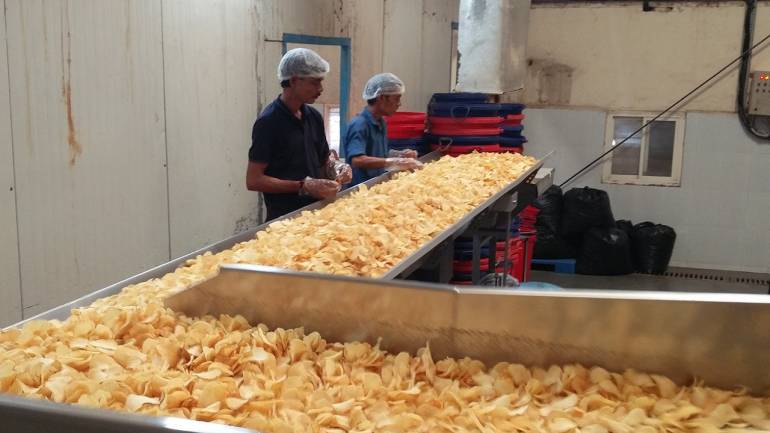
With the money, they installed a chips making unit, a potato rings making plant and a namkeen production unit.
Now Rings constitutes almost 42 percent of the business and chips about 26 percent.
The company makes about 40 lakh packets of rings a day with a toy worth Rs 0.50 inserted in each packet.
The assembly machine inserts a toy in each packet. “Kids are the biggest consumers of Rings, with each packet costing just Rs 5 for the consumer,” Sumit Sharma, the company CFO informs me.
A management that eats together, stays together
It’s now lunch time. The company management invites me to their daily lunch routine.
Lunch is made each day in the either the home of Kumats or the Mehtas. The cooks decide amongst each other on their weekly turns.
At 2 pm every day, office boys come with steel hot-cases of freshly cooked dal, curry, rotis, rice and papad to the boardroom.
Plates are laid and the food is served hot to the top management, which includes the three three founders - Amit and Apurva Kumat and their family friend Arvind Mehta.
Despite over 21 years of working together, the top management eats together every day. It’s very unlike other MNCs where food is served in the cafeteria or inside the cabins of the top management.
Perhaps this is the way, the company management bonds and stays together in thick and thin.
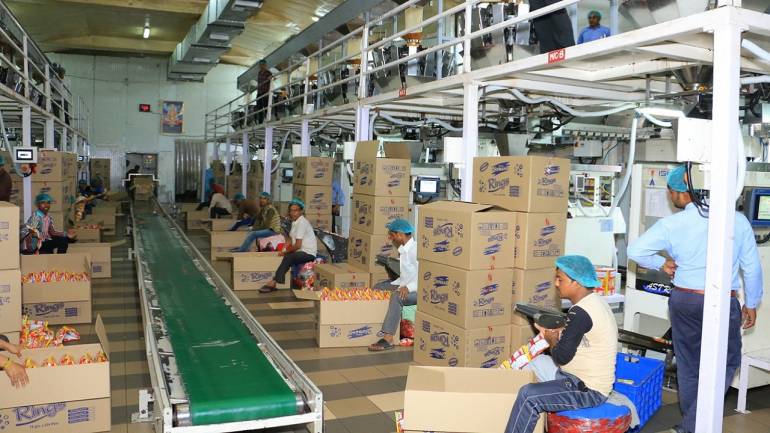
“The company’s name was earlier proposed to be Diamond. However the trademark was found to be registered thus forcing them to suffix ‘Yellow’,” Amit Kumat informs me during the working lunch.
“This also made perfect combination as Arvind bhaiyya believes in numerology and it exactly made 13 digits,” he adds while Arvind Mehta relishes the homemade besan laddoos.
The company which started with just three people now employs about 750 people directly and about 3,000 people indirectly through contract rolls.
Plant is stuck in a hot chocolate problem
After lunch, we travel to a nearby plant making a new product for the Indian market - chocolate pasted jam biscuit.
As I enter the air conditioned plant, fragrance of a bakery engulf me.
Fresh wheat and maize flour dough is being made by the assembly plant which converts it into biscuits.
The biscuits are baked and travel a long distance on the conveyor belts, before jam is poured on them at 68 degrees centigrade. The biscuits again travel some distance and air cooled before their are twisted and turned.
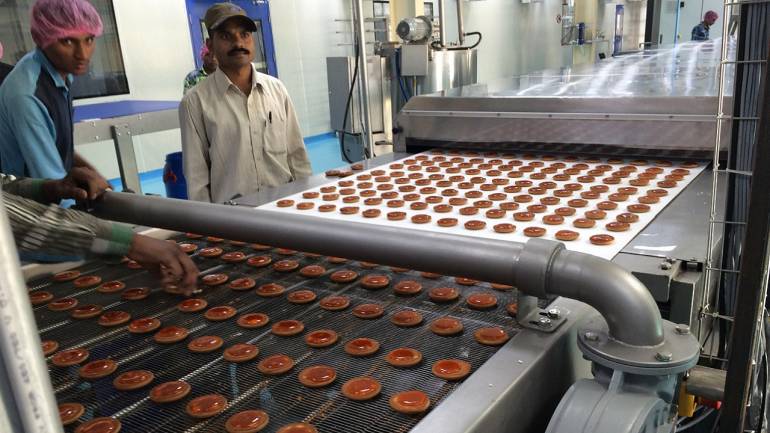
A coat of hot chocolate sauce is pasted on their top. The biscuits again travel a long distance before getting air cooled and are then packed into small packets of Rs 5 each.
Here Kumat is stuck with one challenge. The hot chocolate is not solidifying easily even after getting air cooled thus sticking to the plastic wrappers on the sides.
Food technologists from Italy have flown down to help solve the issue as the company plans to launch the product in the market in the next few weeks.
The assembly line is in a pilot phase. This means none of the thousands of biscuits being made daily are actually being sold in the market.
“Every day about 40 kilos of chocolate biscuits are distributed in the orphanages around Indore, as the product is still in a test pilot stage,” an HR manager of the chocolate biscuit assembly line informs me.
The assembly line hires people from around the village thus creating employment. “We are the biggest employers in this area,” Kumat informs us as we move out of the facility, just a stone’s throw from the Ralamandal wildlife sanctuary.
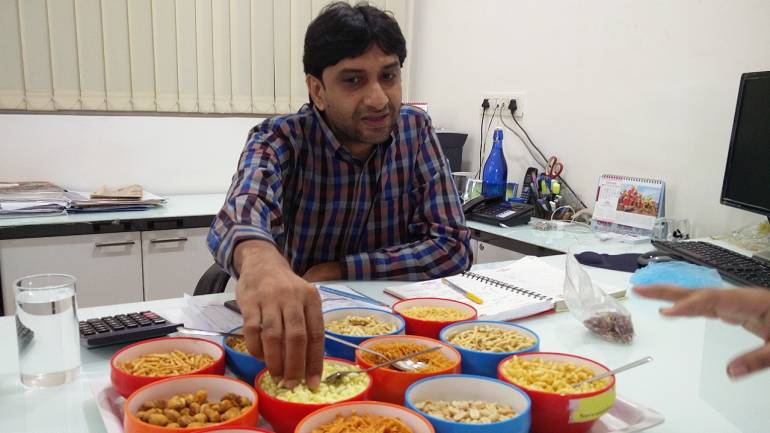
I see reams of Yellow Diamond Snacks hanging upside down alongside packets of Lays and Kurkure, at the roadside paan shops, lining up the road to Ralamandal wildlife sanctuary.
The company’s immediate plans include expansion into Bangladesh with a new plant, launching the chocolate cake-biscuit and expanding India capacities with the proceeds of the recent public offer.
Yellow Diamond has also started exporting products to Canada and South East Asia.
The total size of the recent IPO was Rs 482 crore. Out of this the company raised 200 crore and the rest Rs 282 crore was diverted towards the major shareholders Sequoia Capital and promoter families which took a partial exit. The company also raised Rs 50 crore through a pre-IPO offer.
The company's market capitalisation as of Friday's closure on the BSE is about Rs 2,753 crore.
“My next milestone is achieving a market cap of a billion dollars (Rs 6500 crore) in next two years,” informs Kumat.
